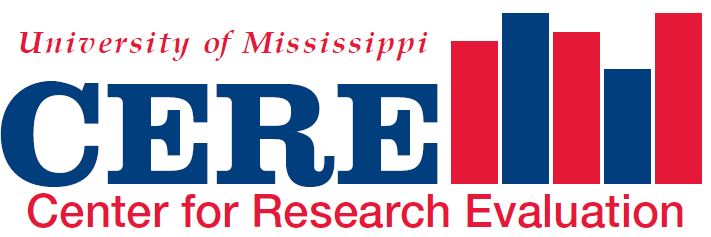Cores and Programs
- Mississippi Center for Clinical and Translational Research Home
- Contact MCCTR
- About Us
- Cores and Programs
- Funding Opportunities
- Training Opportunities
- News and Events
- News Archive
Tracking and Evaluation Core
The Tracking and Evaluation Core produces and analyzes in-depth information on the progress of MCCTR components and programs toward short- and long term goals; their success in completing performance milestones; demand, function, utilization, and effectiveness of CCTR initiatives; decision making processes and effectiveness of resource sharing, allocation of resources, and leveraging of additional resources; outreach and dissemination of MCCTR resources, services, and accomplishments; capacity building, strategic partnership growth and sustainability; and anticipated impediments. The core assesses whether MCCTR activities are implemented as planned and measures their impact, and identifies and monitors the strengths and weaknesses of each program and service.
The mission of the MCCTR Tracking and Evaluation Core is to help determine whether the MCCTR is well implemented, efficiently managed, and demonstrably effective. Its goal is to provide the prospective and retrospective information necessary to course-correct the initiatives and management of the MCCTR when necessary.
The MCCTR Tracking and Evaluation Core's leadership is based at the Center for Research Evaluation (CERE) on the University of Mississippi's main campus in Oxford, MS. Housed in the University of Mississippi's Office of Research and Sponsored Programs, CERE works at the national, state, and local levels to design and implement appropriate evaluation protocols to investigate best practices in education, public service, and other areas; identify effective practices that positively impact program success; and help project directors and their staff make better decisions about project improvement. For more information, visit their site.
on the University of Mississippi's main campus in Oxford, MS. Housed in the University of Mississippi's Office of Research and Sponsored Programs, CERE works at the national, state, and local levels to design and implement appropriate evaluation protocols to investigate best practices in education, public service, and other areas; identify effective practices that positively impact program success; and help project directors and their staff make better decisions about project improvement. For more information, visit their site.
Data Collection Strategies. The T&E Core has collected a wide range of quantitative and qualitative data, including the following (see table). Additional tracking data are collected via tracking forms embedded into REDCap.
Core | Data Collection Strategies Used During MCCTR Phase I |
| Professional Development | (1) Retrospective pre-test to assess investigator research capacity prior to CTRS award [completed by both awardee and their mentor], (2) Post-test to assess current investigator research capacity, (3) Quarterly productivity reporting survey, (4) Interviews with investigators, (5) Interview with mentors, (6) Survey(s) of Seminar Series attendees |
| Pilot Projects | (1) Retrospective pre-test to assess investigator research capacity prior to PPP award [completed by both awardee and their mentor], (2) Post-test to assess current investigator research capacity, (3) Quarterly productivity reporting survey, (4) Annual interviews with investigators, )5) Annual interviews with mentors and (6) Survey of all those who submitted a Letter of Intent for the Pilot Projects |
| Community Engagement and Outreach | (1) Pre- and post-Summer Institute surveys, (2) Follow-up surveys with former Summer Institute participants, (3) Annual survey of community engaged research writing group, (4) Interviews with members of the community engaged research writing group, and (5) Annual survey and Community Advisory Board members |
| BERD | (1) Annual user survey, (2) Analysis of productivity data |
| Research Services | (1) Annual user survey |
| Administrative | (1) Annual user survey |
Core leadership
- Sarah Mason, PhD, Tracking and Evaluation Core Leader, University of Mississippi subaward PI
- Dr. Mason is the Director of the Center for Research Evaluation at the University of Mississippi.
- Hope Gilbert, PhD, Tracking and Evaluation Research Associate
- Dr. Gilbert is a Research Associate at the Center for Research Evaluation at the University of Mississippi.
- Joey Rutherford, MA, Tracking and Evaluation Co-Investigator
- Mr. Rutherford is the Assistant Director of the Center for Research Evaluation at the University of Mississippi.
- Sue Downey, MPA, Evaluation Specialist
- Ms. Downey has served as an evaluation specialist for several multi-institutional, multi-disciplinary programs.


